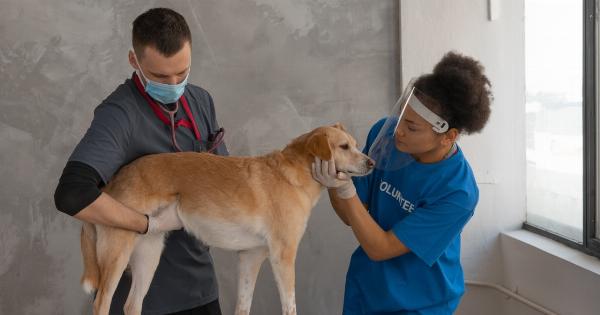Secondhand smoke is dangerous not only to humans but to pets as well. Breathing in smoke from cigarettes, cigars, or any tobacco products can cause various health problems.
It can irritate the respiratory system and increase the risk of lung cancer, heart disease, and other illnesses. Unfortunately, pets exposed to secondhand smoke are at risk of developing these health issues as well.
What is Secondhand Smoke?
Secondhand smoke is the smoke that is inhaled by non-smokers when someone nearby is smoking. It is also known as passive smoking or environmental tobacco smoke (ETS). It contains more than 7,000 chemicals, including 70 carcinogens.
These toxic chemicals are harmful not only to the smoker but to those around them as well.
The Dangers of Secondhand Smoke to Pets
Dogs and cats are vulnerable to the dangers of secondhand smoke as they can inhale it just like humans do. Pets that live in homes with smokers are more likely to develop health problems than those living in smoke-free environments.
The chemicals in secondhand smoke can cause various health issues in pets, including:.
- Cancer, particularly lung cancer
- Respiratory problems, including coughing, wheezing, and breathing difficulties
- Eye irritation and conjunctivitis
- Heart disease
- Oral and nasal cancer
- Chronic bronchitis
- Asthma
How Secondhand Smoke Affects Dogs
Dogs are more likely to develop cancer due to secondhand smoke exposure.
According to a study published in the Journal of Veterinary Internal Medicine, dogs living with smokers are more likely to have nasal cancer and lung cancer compared to those living with non-smokers. They are also at risk of developing respiratory problems, allergies, and eye injuries. Additionally, dogs exposed to secondhand smoke may have bad breath, yellowed teeth, and dry coats due to the toxic chemicals present in smoke.
How Secondhand Smoke Affects Cats
Cats are even more susceptible to the harmful effects of secondhand smoke. They are more likely to develop lymphoma, which is a type of cancer that affects the lymph nodes.
According to a study published in the Journal of the American Veterinary Medical Association, cats exposed to secondhand smoke are twice as likely to develop lymphoma as those living in smoke-free homes. They are also at risk of developing oral cancer, lung cancer, and respiratory problems. Moreover, cats that groom themselves frequently may ingest the toxic chemicals present in smoke, which can lead to digestive issues and other health problems.
Secondhand Smoke and Pet Behaviour
In addition to the physical health risks, secondhand smoke can also affect pet behaviour. Pets exposed to smoke may become more anxious, stressed, and agitated.
They may also develop behavioural problems, such as aggression, destructiveness, and hyperactivity. Moreover, pets that live in homes with smokers may have a harder time learning basic commands and may struggle with obedience training.
Protecting Your Pets from Secondhand Smoke
The best way to protect your pets from secondhand smoke is to quit smoking. If you are a smoker, quitting is the most effective way to ensure your pets stay healthy.
If quitting is not an option, here are some tips to minimise your pet’s exposure to secondhand smoke:.
- Smoke outside away from your pets and your home
- Use air purifiers in the rooms where your pets spend most of their time
- Designate a smoking room in your home with a good ventilation system
- Wash your hands and change your clothes after smoking
Conclusion
Secondhand smoke is just as dangerous to pets as it is to humans. Breathing in the toxic chemicals present in smoke can cause various health issues, including cancer, respiratory problems, and heart disease.
Moreover, pets living with smokers may develop behavioural problems and may have a harder time learning basic commands. Therefore, it is essential to protect your pets from secondhand smoke by quitting smoking or using smoke-minimising techniques.

























